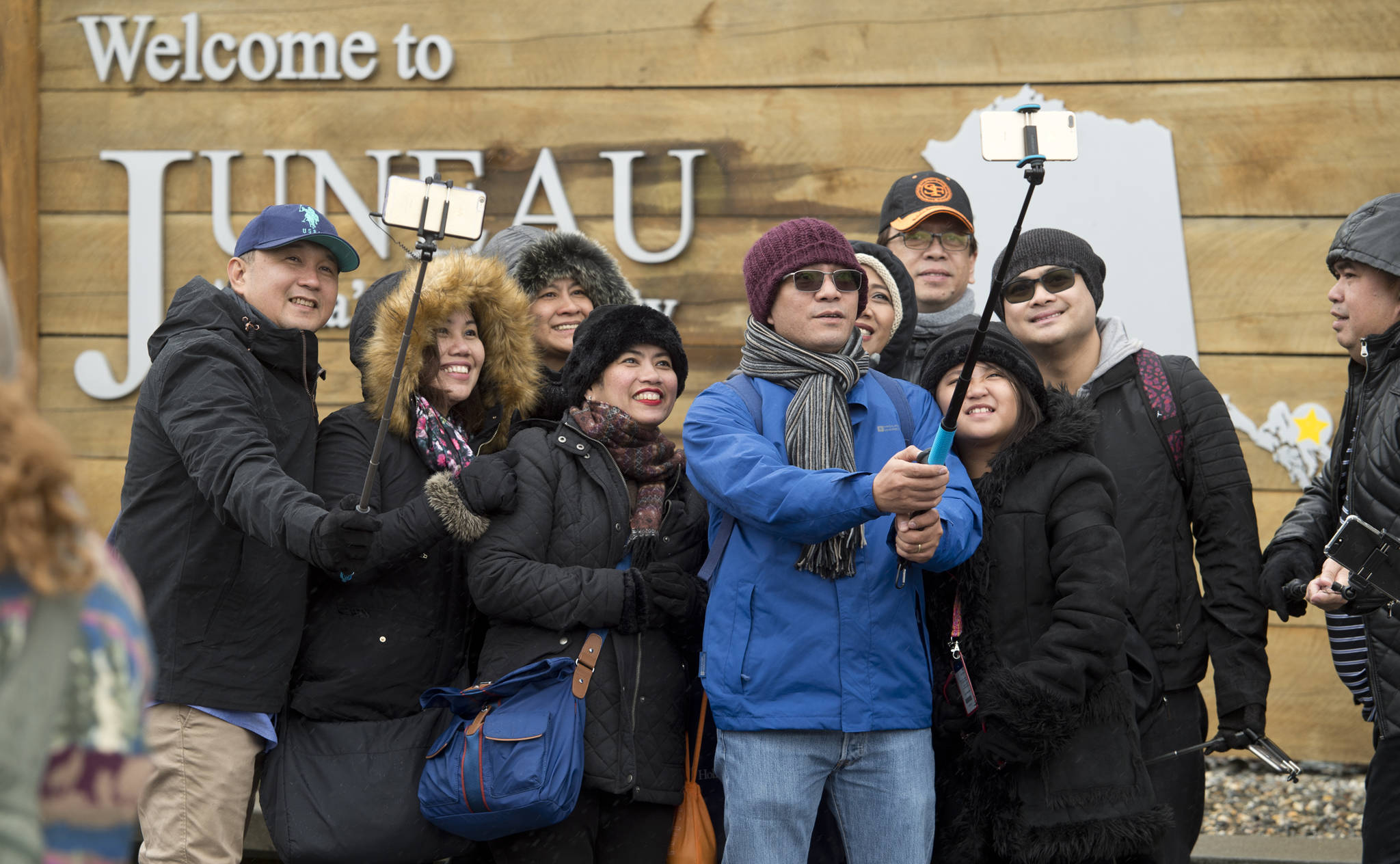City officials expect to receive more money in marine passenger fees this year than last — half a million more, to be exact — and are looking for public input on how to spend it.
The money comes from a tax, often referred to as a “head tax,” that charges a small tax for every cruise ship passenger who comes into Juneau during the summer. City officials estimate that this tax will bring in $5.75 million this year, compared to the estimate of $5.2 million in the 2018 budget. Juneau set a record last year with more than 1.1 million cruise ship visitors, and experts expect that number to keep rising.
City Manager Rorie Watt shared his list of recommendations this past Wednesday for how to allocate that money. He and city staff members identified 29 projects, programs and grants where they intend to send those funds. Watt’s memo detailing the allocations is available on the city’s website.
From now until Feb. 16, members of the public can share their thoughts on the recommendations. Comments can be submitted to Susan Phillips in the City Manager’s Office at susan.phillips@juneau.org or via mail to the City Manager’s Office at 155 S. Seward Street. The comments will be forwarded to the Assembly Finance Committee for review and then to the Assembly for consideration this spring as the Assembly members work through the annual budget process.
No comments were submitted during the public comment period last year, according to the final list of recommendations for the 2018 budget.
The top item on the list is a general allocation to the CBJ for $1.4 million for government services. This is an annual contribution first approved by the Assembly Finance Committee in 2000. The same amount of money was approved for the 2018 budget, according to a spreadsheet on the city’s website.
Watt also recommends putting $900,000 toward road work that will take place on Front Street, Franklin Street and a part of First Street. The first phase of this project was completed in 2017. Other notable projects include allocating $500,000 for downtown restrooms, $450,000 for signage in the Willoughby District and $250,000 for the next phases of the Seawalk.
The largest recommended grant in the memo is $237,500 to Travel Juneau to staff crossing guards during the summer downtown. Other projects on the list include paying for increased police patrol downtown, seasonal EMTs and extra cleaning on downtown streets.
City staff sifted through $10.9 million worth of requests, whittling that down to the $5.75 worth of recommendations that appear in Watt’s memo. For example, more than $1 million worth of requested grant money for improvements for the AJ Dock (including a covered shuttle area and pedestrian staging area expansion) were left off the list of recommendations. Instead of the $1 million of requested funding for the next phases of the Seawalk, Watt only recommended $250,000 worth of funding.
The city is currently in a lawsuit alleging that it has misused head tax money in the past. Cruise Lines International Association (CLIA) Alaska filed a lawsuit against the city in April 2016, alleging that the city misused head tax money.
CLIA Alaska’s argument in the case is that the city used money from the head tax — funds that are required to be spent to benefit a cruise vessel — for projects that do not directly benefit the vessel.
Central to the argument, as reported at the time, was the Whale Project. The project, which built a life-sized sculpture of a whale near the Douglas Bridge, was funded through private donations. What CLIA alleged in its lawsuit in April 2016 was that the head tax money the city used to fund a seawalk and park surrounding the whale was illegal. So far, the CBJ has set aside more than $800,000 for the lawsuit.
• Contact reporter Alex McCarthy at 523-2271 or alex.mccarthy@juneauempire.com. Follow him on Twitter at @akmccarthy.

